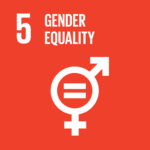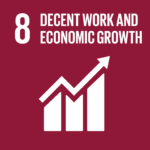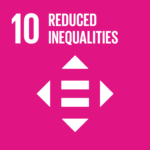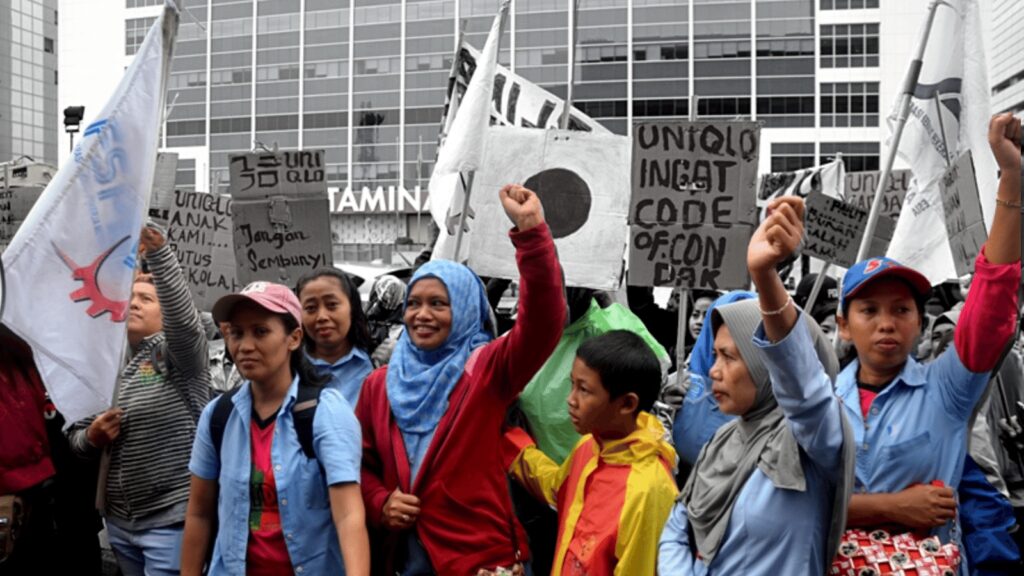When Uniqlo and S.Oliver Fashion supplier Jaba Garmindo closed its factory, the garment workers were robbed of the money they were owed!
In a recent open letter, Indonesian workers demanded that fashion firms Uniqlo and s.Oliver pay the compensation to which they are entitled.
RELEVANT SUSTAINABLE GOALS



The Case Of Jaba Garmindo and Uniqlo
Uniqlo became a big buyer at Jaba Garmindo in 2012, resulting in increased targets and pressure on employees. Uniqlo had become a significant buyer by 2014, and the factory had had to let go of numerous other long-term European buyers to meet Uniqlo’s demands. Finally, Uniqlo withdrew completely from the plant in November 2014, citing “quality difficulties.” Their removal precipitated the business’s bankruptcy, and Jaba Garmindo closed down in April 2015 with no warning to workers.
Globally, garment workers were robbed of at least half a billion dollars in legally owed severance during the first year of the pandemic alone—a figure that is only expected to rise.
payyourworkers.org
Many had worked for the company for decades but, due to poverty wages, had little or no savings to fall back on. Currently, Indonesia doesn’t offer state benefits and requires companies to provide severance for workers. However, the factory couldn’t pay due to bankruptcy and both Uniqlo and S.Oliver refused, denying any responsibility towards the workers. In 2016, the brand Jack Wolfskin, who had 2% of production in the factory, paid less than a 2% share of the money owed. This equated to less than US $20 per worker.
Open Letter From Jaba Garmindo Workers on 7th Anniversary of Factory Bankruptcy
Workers release an open letter to the Chairman of Uniqlo and the CEO of s.Oliver, calling on the brands to finally pay up the $5.5 million owed on the 7th anniversary of the Jaba Garmindo factory bankruptcy.
Dear Mr Tadashi Yanai, Chairman of Uniqlo (Fast Retailing) and Mr Claus-Dietrich Lahrs, CEO of s.Oliver,
We made the clothes that made you rich, but we are owed $5.5 million for making them. We have fought for 7 years for the severance pay we are legally-owed and we are still fighting. We are exhausted and in debt, but still you refuse to pay up. Jaba Garmindo, the Indonesian factory you sourced from, went bankrupt in 2015 so there is no factory management for us to demand this money from, there is only you. We are asking you to do what should have been done 7 years ago: pay us the $5.5 million we are legally owed.
Our world and yours do not overlap often. We made the clothes you sell but we have no luxuries in our lives. Since the Jaba Garmindo factory closed in 2015, many of us have been forced to work informally – cleaning clams for fishermen, selling food on the streets, daily work which offered us no security. These jobs earned us even less than we were paid as garment workers and they disappeared overnight because of Covid restrictions. We were left penniless, again. There have been days, Mr Yanai and Mr Lahrs, where we have eaten nothing but one bowl of plain rice. Our children have cried with empty bellies and we haven’t been able to feed them. Will you ever know what that feels like? Can you even imagine? Some of us have had to pull our children out of school because we can’t afford the cost of school books and fees. We have been forced to put our children’s futures on hold while we fight for money we earned.
We know, Mr Yanai, of your great wealth. You have a personal fortune of $26.4 billion, more than you could spend in a hundred lifetimes. And Mr Lahrs, your experience with luxury fashion brands means you are used to the finer things in life. You have never had to sort through rubbish for things to sell in order to buy rice. You have never had to tell your hungry child that there is no food for them tonight.
What has happened to us is no secret from you, there has even been a documentary made about our case, and you are well aware of the Fair Labor Association report which recommends that both your brands pay a meaningful amount into a relief fund for us. But still you won’t. You claim you owe us nothing, but it’s your products we made. What would it take for you to pay up? How desperate do you want us to be, before you do the right thing?
You did not take the responsibility as brands should. You didn’t make sure that the factory had the money to pay us when we lost our jobs, as companies are meant to according to international standards. We did our jobs well, but that was part of yours and you failed. Other brands, like Nike and Adidas, made sure their workers got paid the millions they were owed after severance theft, but you are failing to right the wrong and pay us what we are owed. Mr Yanai, you talk of female empowerment, but you ignore the women in your own supply chain who are disempowered because of your decisions. Mr Lahrs, s.Oliver’s motto is ‘We Care’, but who do you care about? It is clearly not us, the workers.
We can’t get the past 7 years of our lives back. We can’t bring back those who have died because they couldn’t afford medical care; the education that’s been lost; the doors that have closed for us and our children. But you can give us our futures back. You can pay what we are owed.
That is all we are asking: pay us what we are owed.
Terima kasih,
The workers of Jaba Garmindo
Published 2022-04-19 (source : CleanClothesCampaign.org
How To Steal Your Workers’ Future
How to Steal Your Workers’ Future, is a powerful portrayal of the long-term devastation that severance theft causes for garment workers and their families. The short films contrasting stories of two garment workers in Indonesia are examples of an industry-wide problem that has grown exponentially since the start of the pandemic.
Many fashion brands responded to COVID-19 by canceling orders and demanding huge discounts for clothes already produced, causing factories to fall into financial difficulties or bankruptcy, leaving workers with nothing. Most of the risk was passed down to garment workers, those least able to carry it. Globally, garment workers were robbed of at least half a billion dollars in legally owed severance during the first year of the pandemic alone—a figure that is only expected to rise.
Many fashion brands responded to COVID-19 by canceling orders and demanding huge discounts for clothes already produced, causing factories to fall into financial difficulties or bankruptcy, leaving workers with nothing. Most of the risk was passed down to garment workers, those least able to carry it. Globally, garment workers were robbed of at least half a billion dollars in legally owed severance during the first year of the pandemic alone—a figure that is only expected to rise.
What You Can Do
We can achieve systematic change. Unions and labor organizations call for brands to pay garment workers and ensure that those displaced by severance thefts are not left destitute.Pressure Uniqlo and S.Oliver to #payyourworkers with tweet below :
Tadashi Yanai, founder of @UNIQLO_JP, has a personal fortune of $31.6 BILLION. Yet 2,000 Indonesian garment workers are STILL owed $5.5million after their factory went bankrupt in 2015. They made clothes for @UNIQLO_JP. #PayUpUniqlo & #PayYourWorkers
You may also be interested in :
Going With The Flow : The Relationship Between Water And Migration


